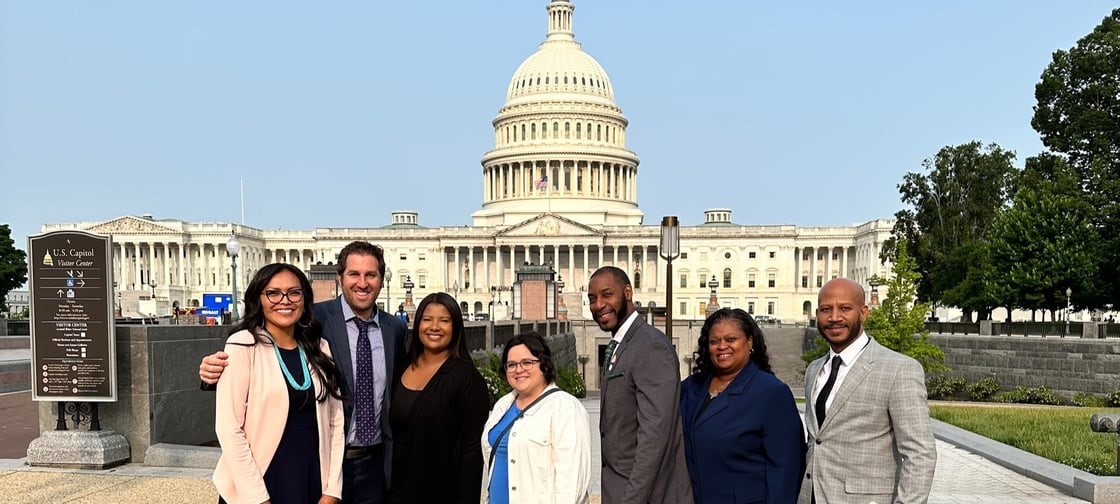National group says charter schools are already meeting President’s objectives
WASHINGTON, D.C.-Tonight President Obama made reducing the income inequality gap in America a top priority for this year. The President announced two new education initiatives to help achieve his objectives to strengthen the middle class and build new ladders of opportunity into the middle class.These education initiatives include an effort to connect 15,000 schools and 20 million students to the best technology and “redesigning high schools to teach the real-world skills that students need” by announcing a $100 million competition to connect students with industry-relevant education. The President also stressed the importance of increasing the number of college graduates from low-income families and making high-quality preschool more widely available. Research has shown that a college education or some sort of technical degree is the key to higher earnings for working adults. Workers with a college degree have annual earnings between 25 and 50% higher than workers who have only completed high school. Workers without a high school diploma earn three times less than a worker with a college degree, and are much more likely to experience unemployment at some time in their careers.
The income gap is even greater for minorities who don’t finish high school or college. They earn almost two million dollars less over their lifetimes than people who graduate from college.
Its clear that we need more American children to graduate from college especially children from minority and low-income backgrounds if we ever want to make a dent in the income gap,” said Nina Rees, president and CEO of the National Alliance for Public Charter Schools. The high school students who are prepared for college are already going, so we need to focus on making sure our elementary, middle, and high schools are challenging traditionally underserved students and preparing them for college and the workforce. Public charter schools play a key role in this.
Charter schools were created more than 20 years ago to get at exactly this issue. They were designed with flexibility from traditional school system rules with the purpose of helping close the achievement gap for low-income and minority students. And they are doing just that.
That’s why President Obama has been a significant supporter of charter schools, continued Rees.
Nationwide, charter schools teach a higher percentage of minority and low-income children the very groups who are least likely to graduate from college. But charter schools are showing that demographics aren’t destiny.
Charter schools have higher high school graduation rates and a higher percentage of their students go on to college, compared to traditional public schools. Research released from the Center for Research on Educational Outcomes at Stanford University shows that charter school students who are low-income, minority, and still learning English, do better in school than their peers at traditional public schools.
Even more important is that charter schools seem to be having a long-term impact on earnings. A new study from researchers at Mathematica shows students who graduated from charter high schools in Florida and Chicago go on to earn more than their peers in their first few years out of college. By their mid-20s, charter school graduates in Florida are earning 12 percent more than their peers.
Charter schools are also able to adapt their curriculum and focus to better prepare children for the jobs of the future. Twenty percent of all charter schools nationwide focus on STEM education. Having more students enter college programs in science, technology, engineering, and math is a key priority for the Obama administration, and another area where charters are excelling.
Charter schools are already leading the nation in creating technology-enriched, personalized learning environments through innovations like hybrid classrooms. In a hybrid classroom, students spend part of the day in a traditional lecture-style environment and part of the learning at their own pace with computer-assisted lessons under the direction of a teacher. Charter schools have also been early adopters of personalized learning tools, like the online Khan Academy lessons, to help students advance their knowledge, or get the remedial help they need.
Charter schools aren’t a silver bullet especially for disadvantaged children. Disadvantaged children need access to other programs, like a high-quality preschool, to make sure they are ready for school in the first place, said Rees. We also need to make sure traditional public schools continue to improve. Thats why school accountability requirements are important. Parents and lawmakers need to know how well the schools in their community are doing so we can recognize success and address challenges. That certainly requires adequate funding for all schools and over the last few years, school funding has gone down at the federal, state, and local levels.
We are encouraged that the President continues to make education a priority, Rees continued. We have called for increased spending on the federal program that supports the creation of new charter schools and the expansion of existing charter schools with a proven track record. We believe the federal government should commit $330 million in funding to start up and expand high-quality charter schools. We don’t have to reinvent the wheel we already know whats working and we need to invest in it.
About the National Alliance for Public Charter Schools
The National Alliance for Public Charter Schools is the leading national nonprofit organization committed to advancing the public charter school movement. Our mission is to lead public education to unprecedented levels of academic achievement by fostering a strong charter sector. For more information, please visit our website at www.publiccharters.org.







